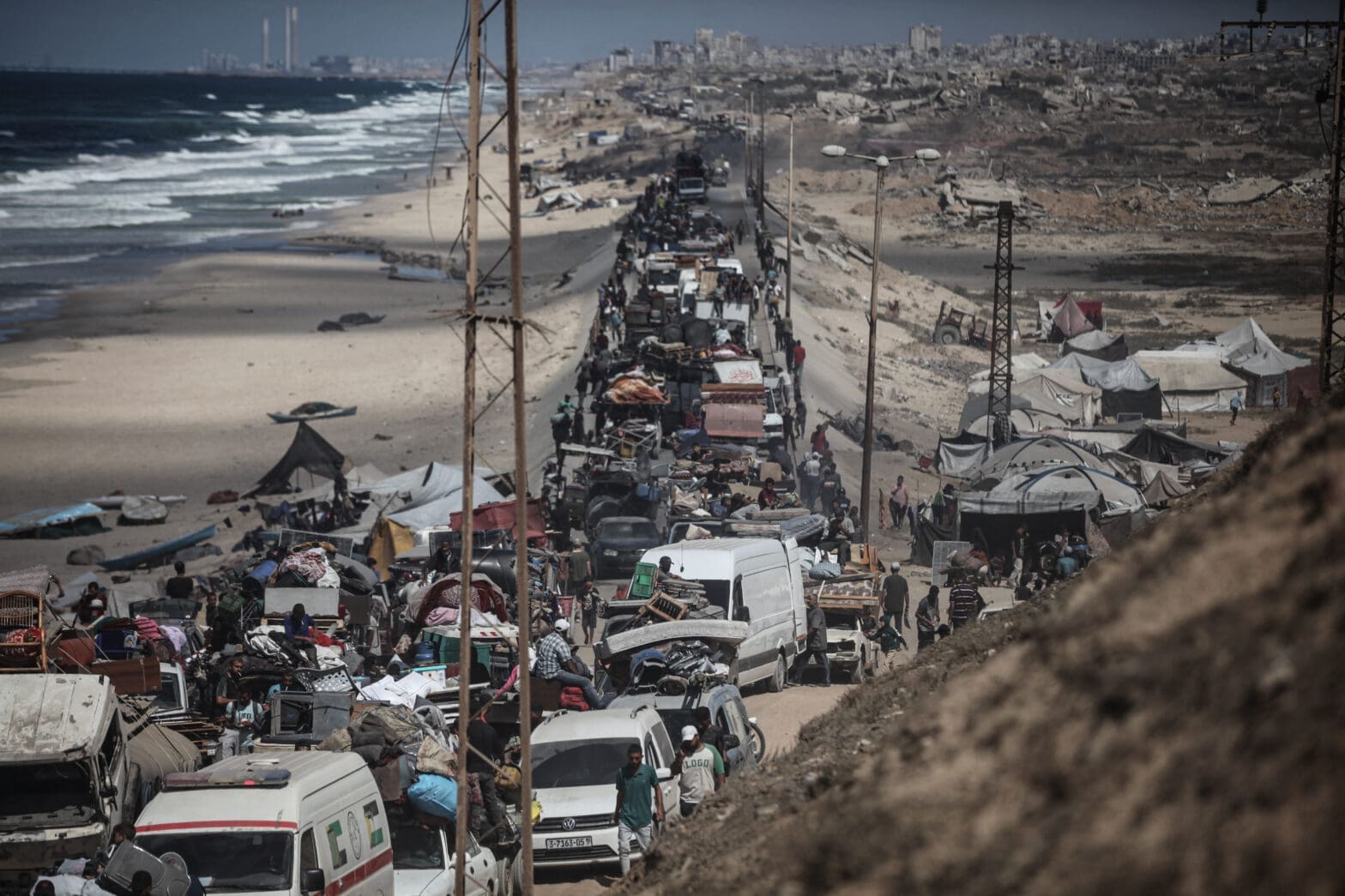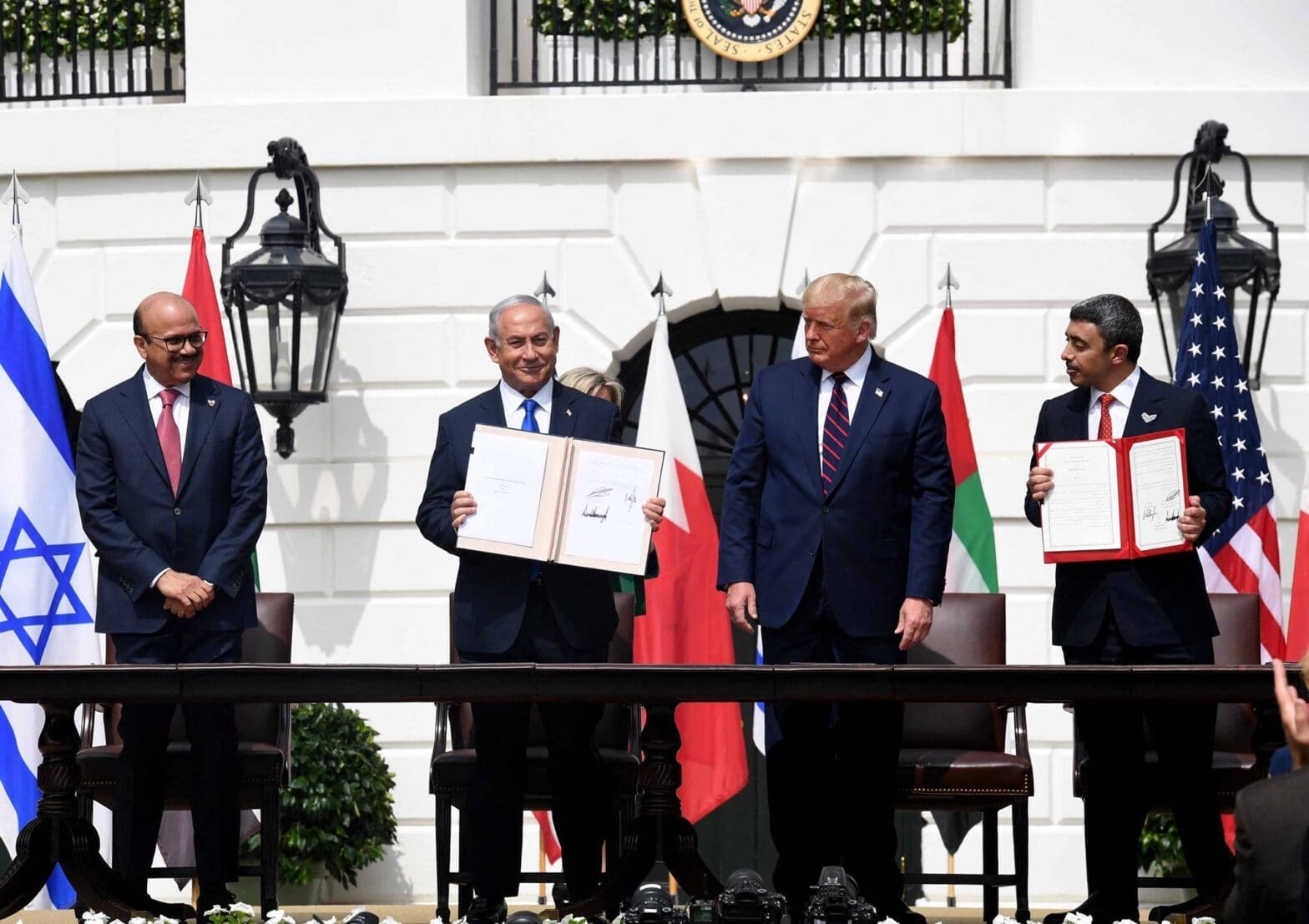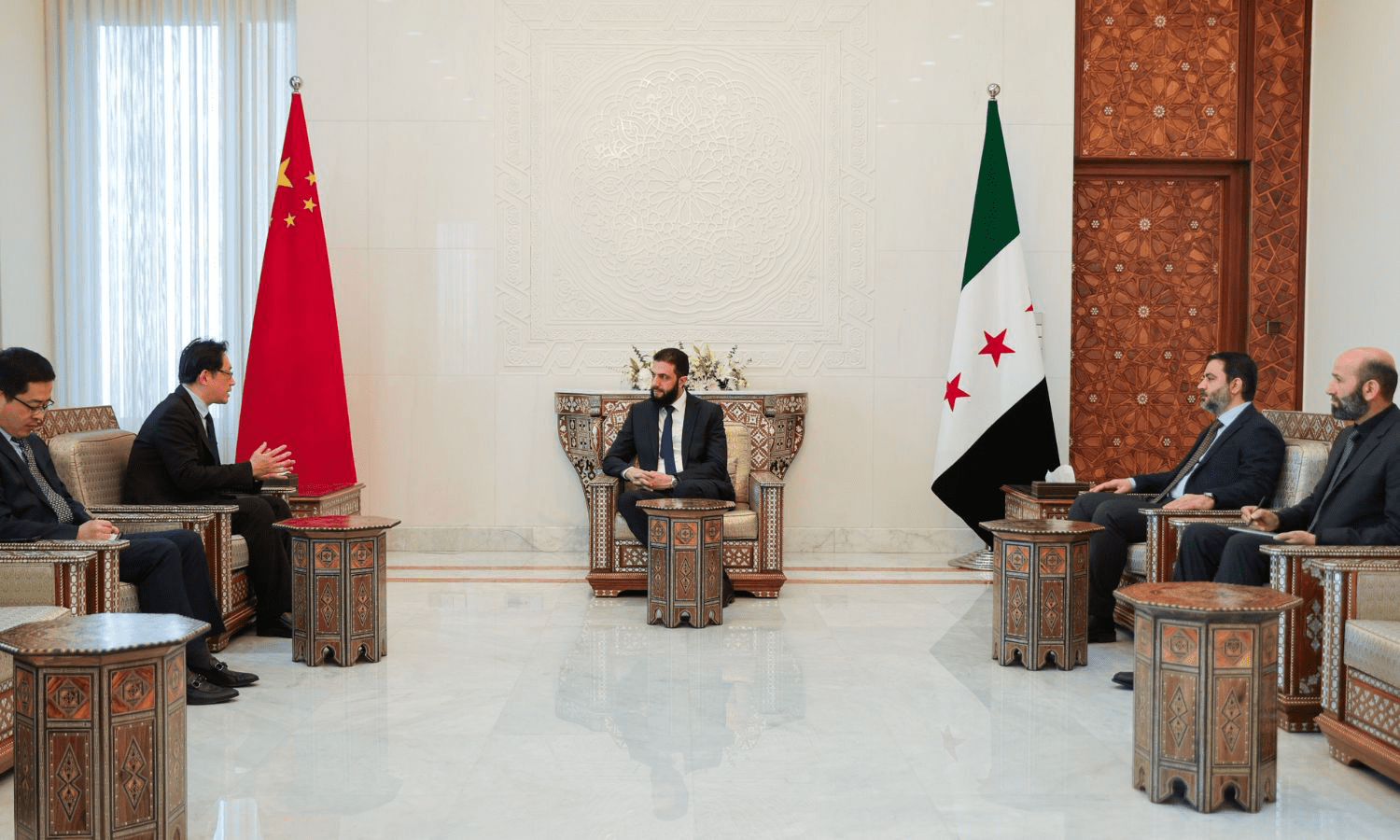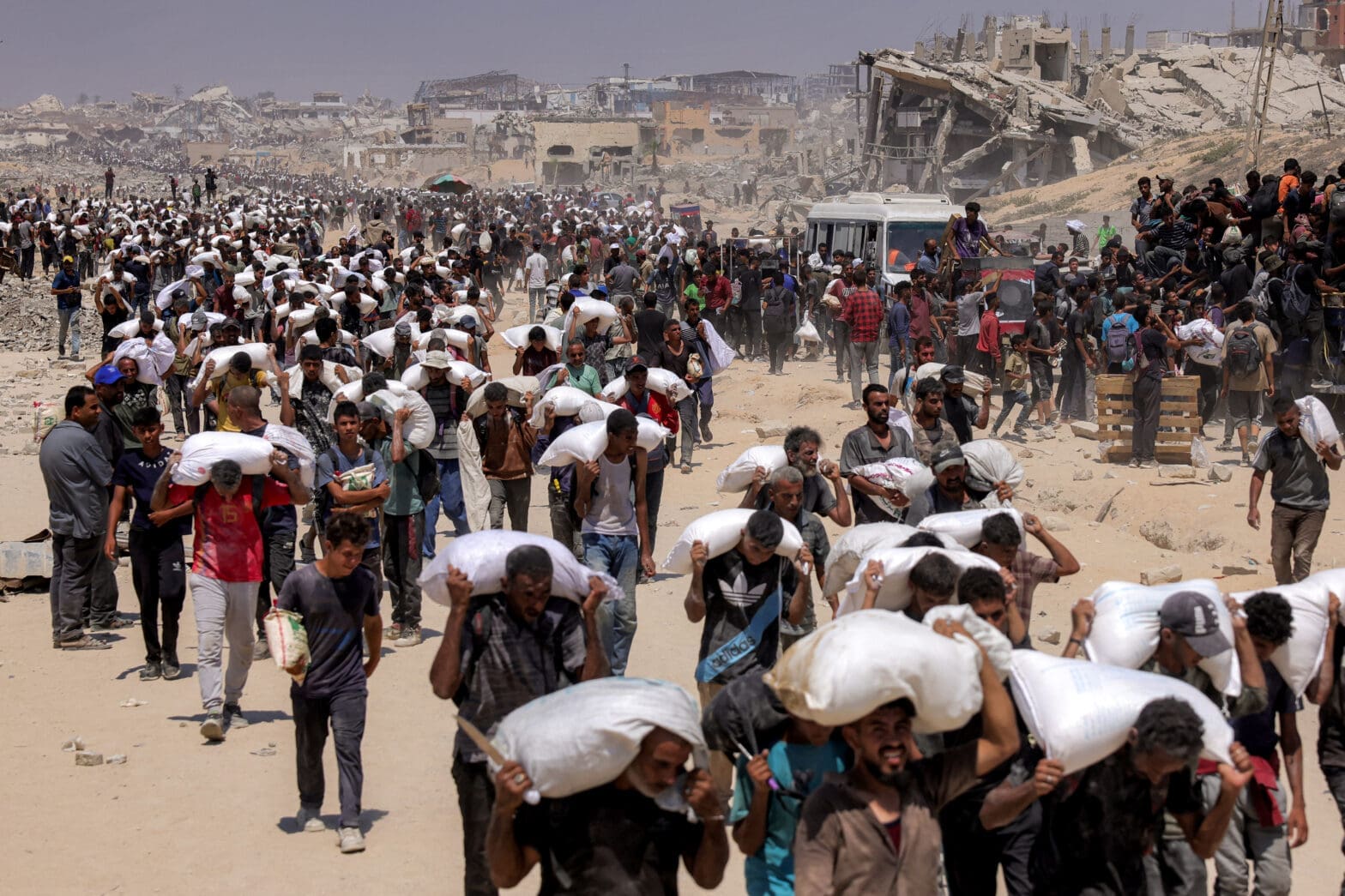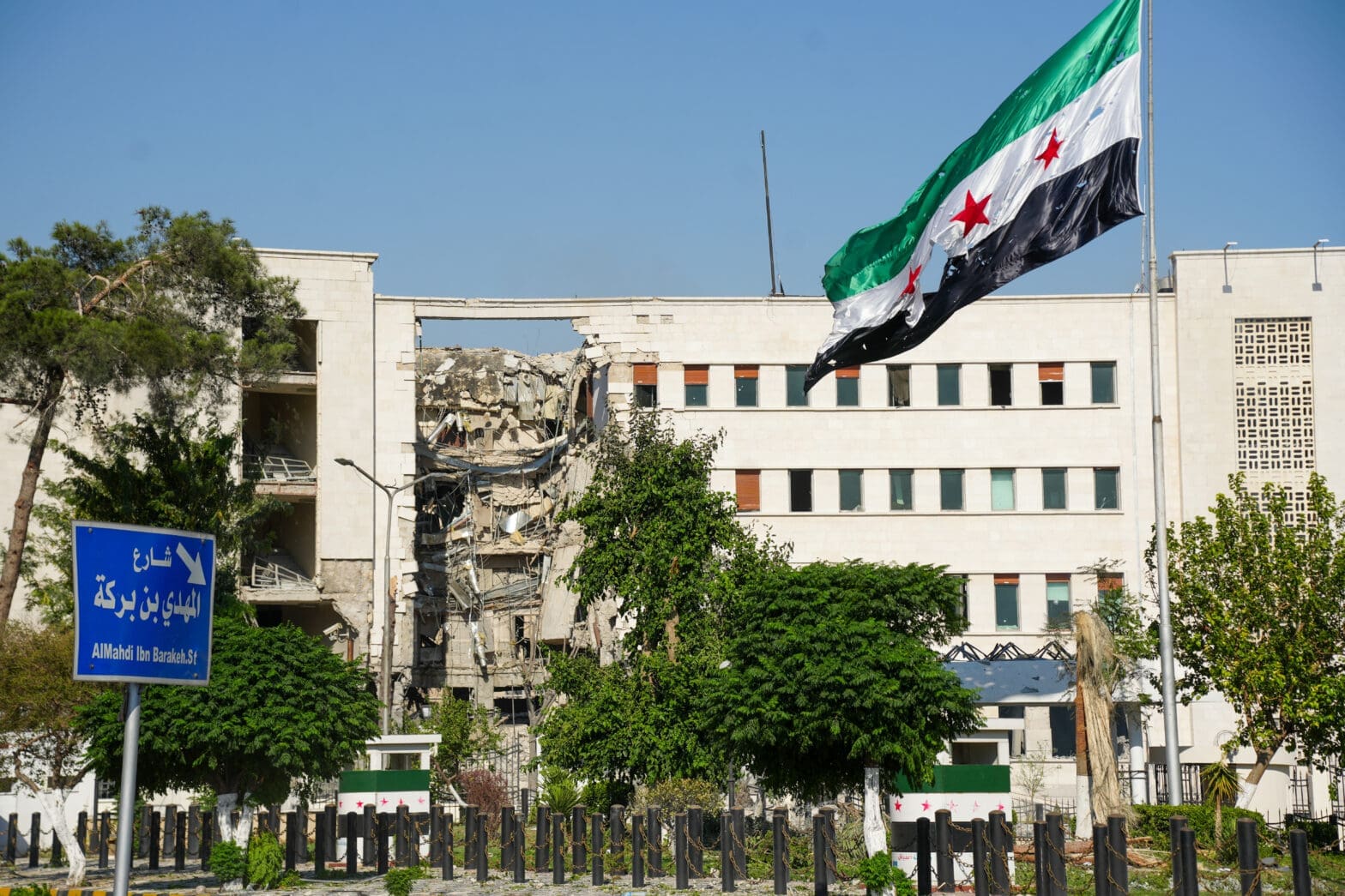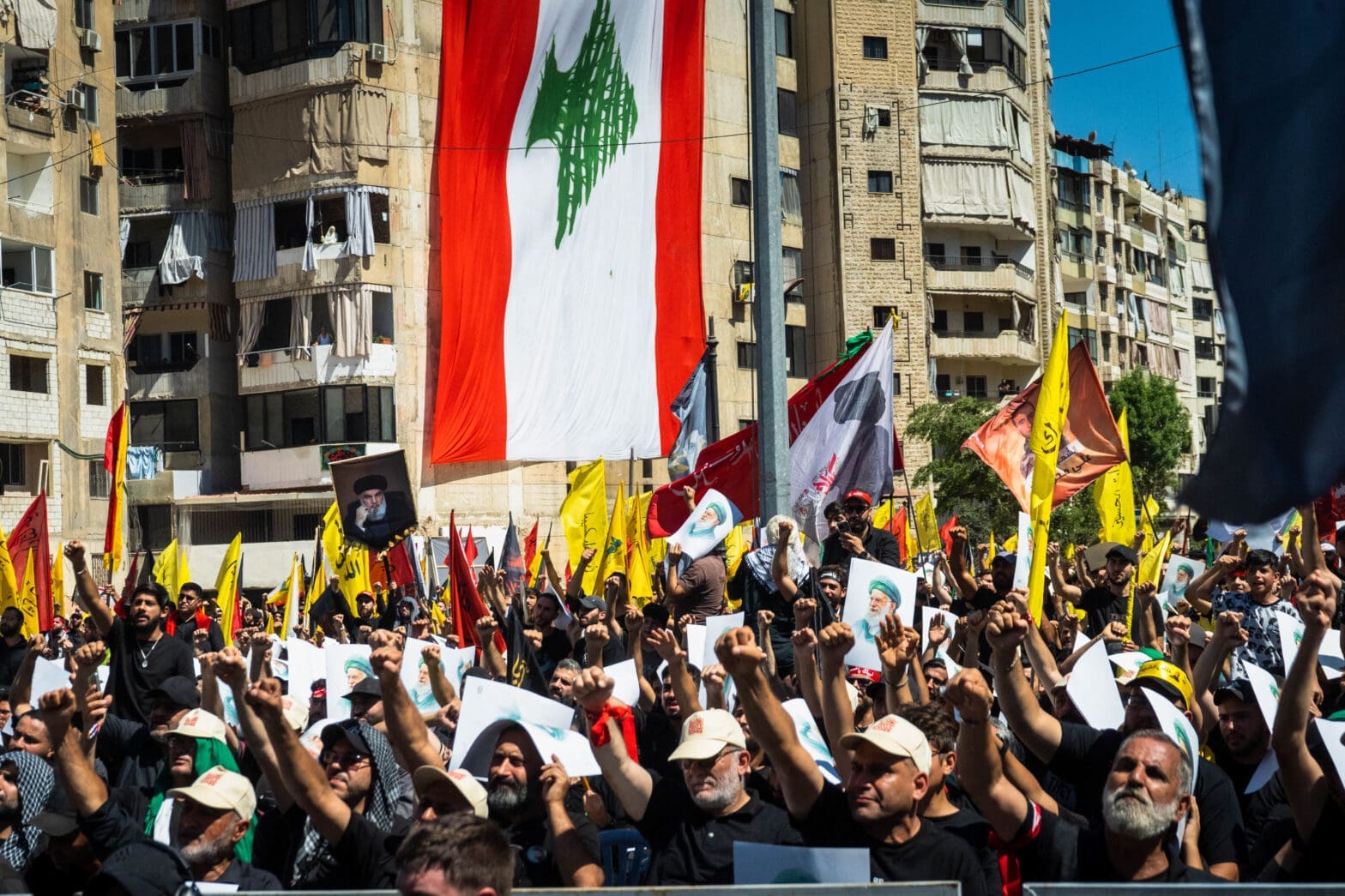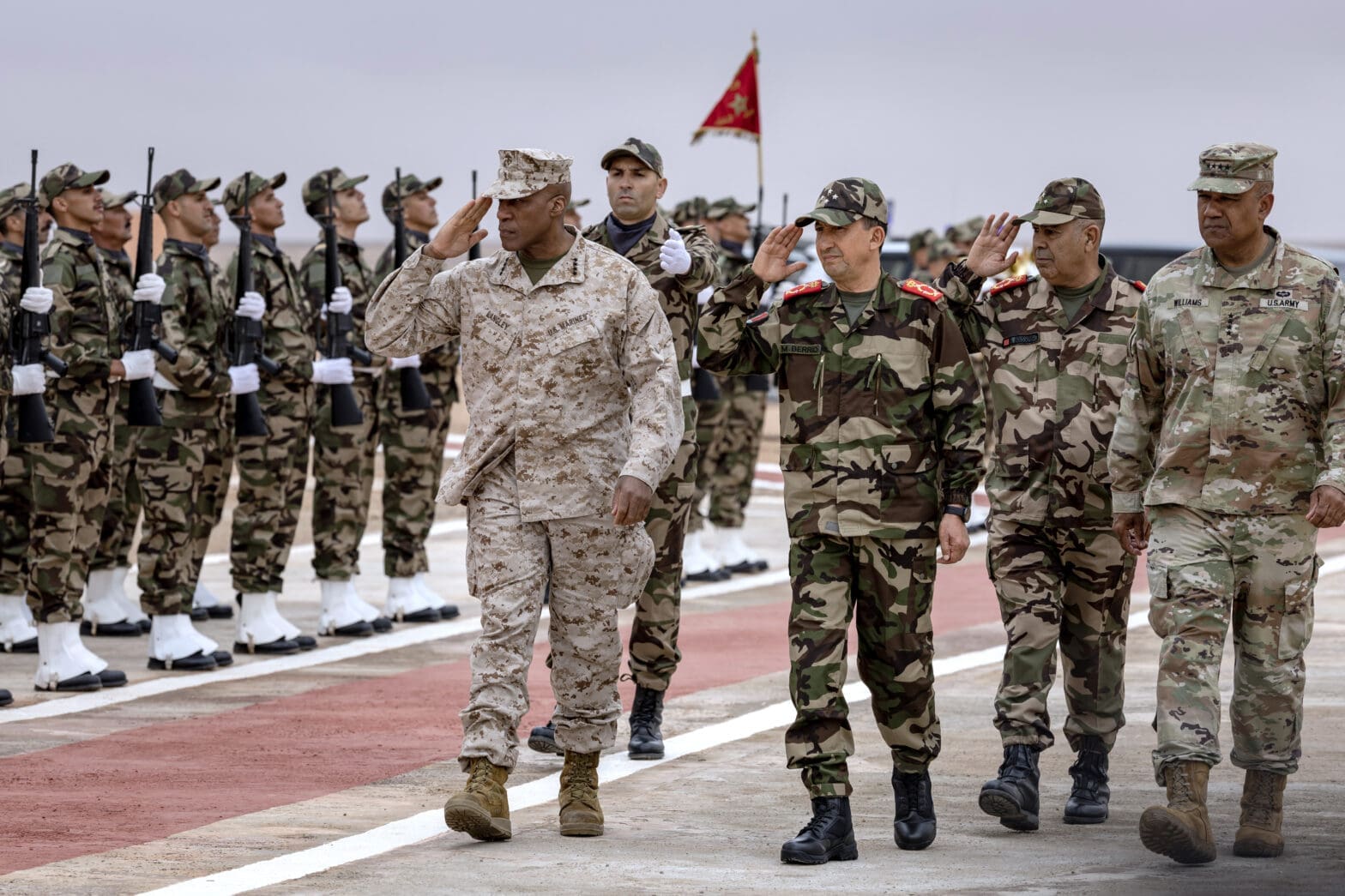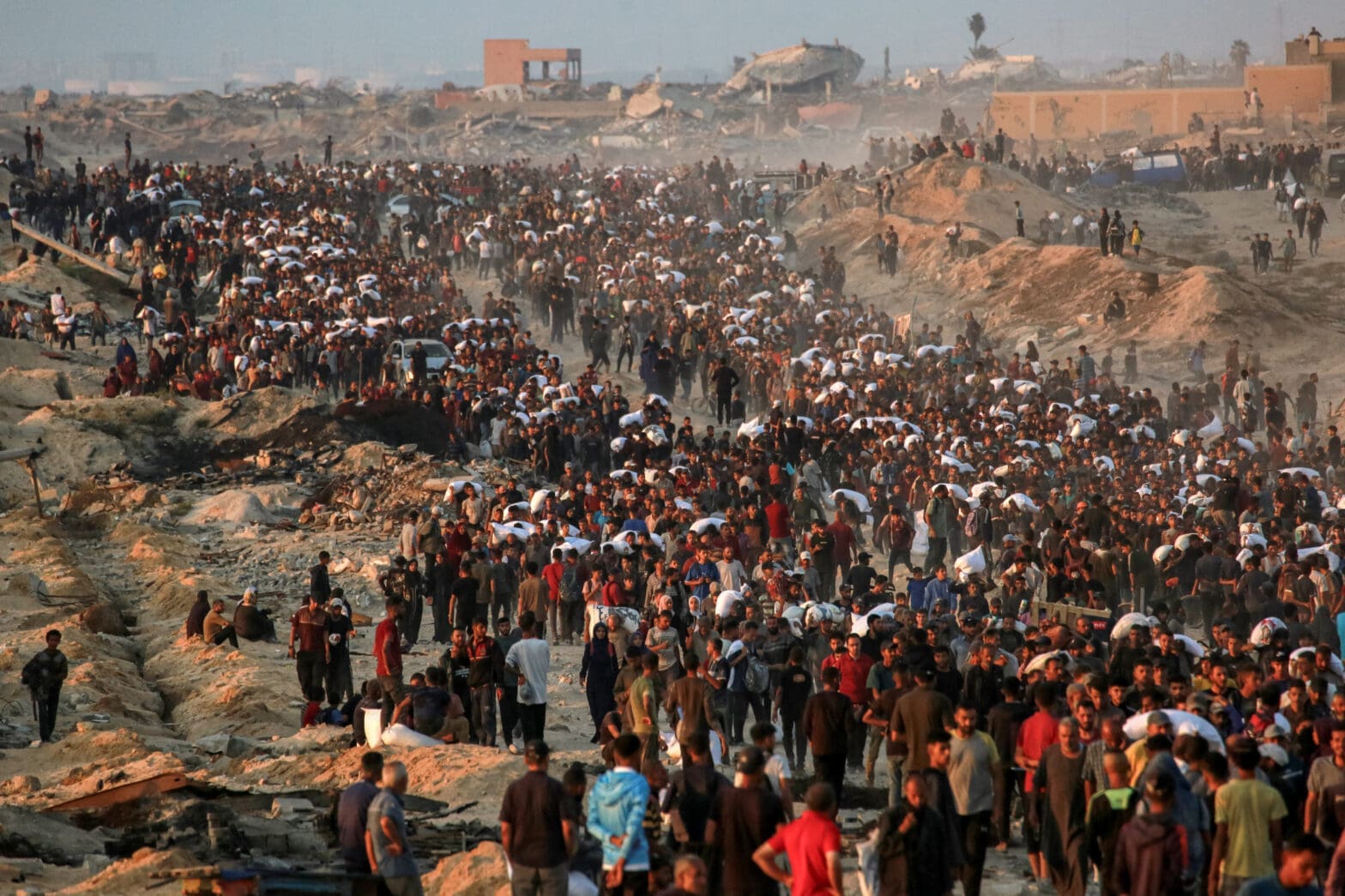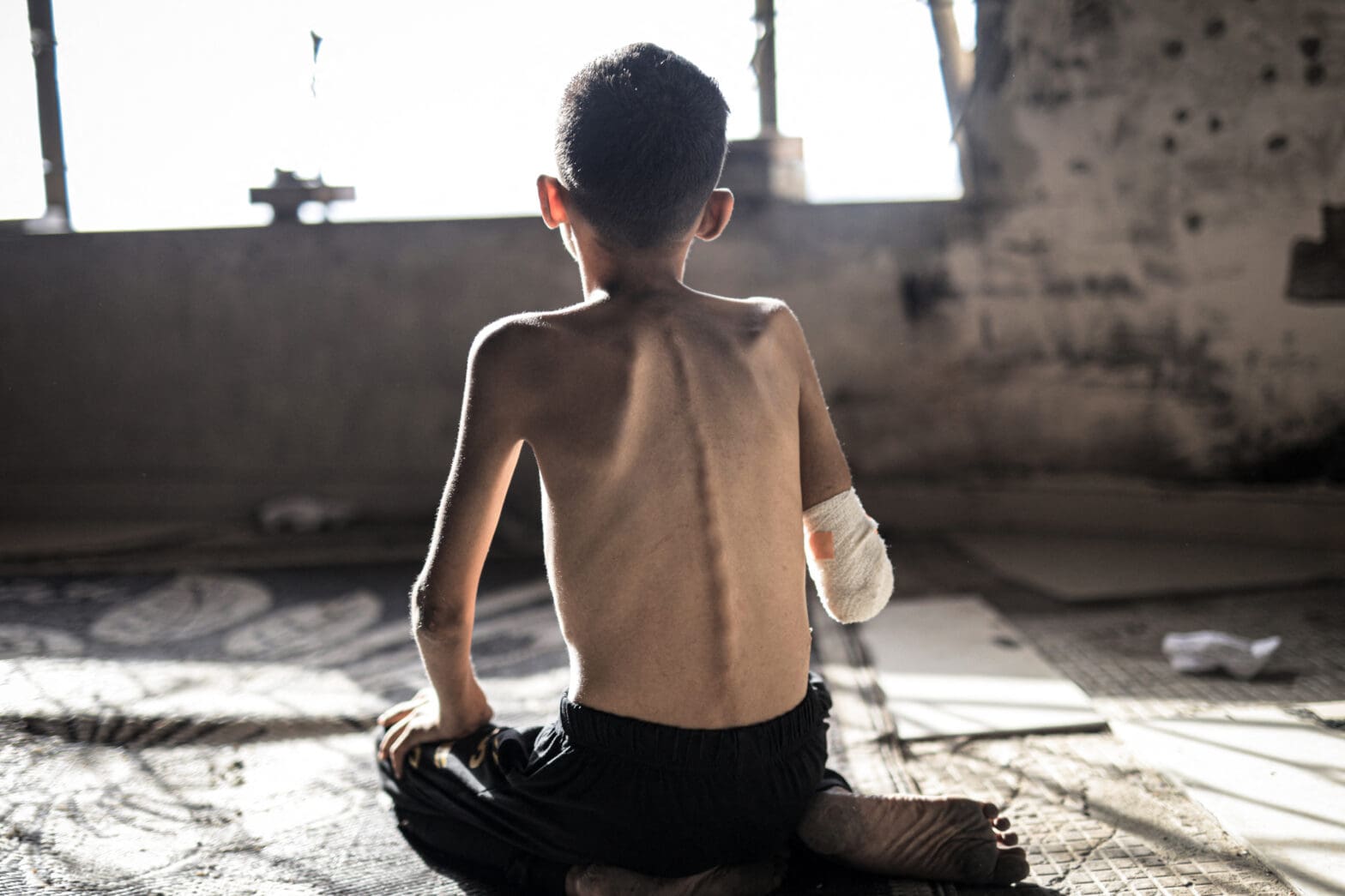On January 6, Iran’s newly established Defense Council issued a short but controversial statement. While reaffirming Iran’s long-standing claim that it does not seek war, the council declared that Tehran no longer considers itself limited to responding after an attack and would treat “objective signs of threat” as part of its security calculus. The phrasing is deliberately cautious,… Continue reading Is Iran Changing Its Defense Doctrine?
Afkar Region: MENA
Reconstructing Gaza According to Trump’s Plan Would Be a Disaster
When Donald Trump’s 20-point “peace plan” was unveiled in late September, many countries in the Middle East and Europe rallied around it. The reason was not so much the plan’s contents, which justifiably raised eyebrows, but rather that it appeared to be the last, best hope to halt Israel’s appalling military onslaught in Gaza. For more than a month afterward, the U.S. sought a UN Security Council endorsement for key… Continue reading Reconstructing Gaza According to Trump’s Plan Would Be a Disaster
As War Looms, Lebanon Is Forced to Negotiate Under Fire
When Lebanese President Joseph Aoun announced in October that his country was prepared to engage in indirect negotiations with Israel, it marked a rupture with decades of political taboo—and was a tacit admission of how precarious Lebanon’s position has become. The move was not in response to a sudden diplomatic opening. It reflected something more… Continue reading As War Looms, Lebanon Is Forced to Negotiate Under Fire
Egypt’s New Development Plan Perpetuates IMF Policies
In September, the Egyptian government issued a document entitled “The National Narrative for Economic Development: Policies Supporting Growth and Employment,” laying out a comprehensive vision for the country’s development over the next decade. The plan’s content and the timing of its release, however, suggest that it is less a new beginning than a repackaging of… Continue reading Egypt’s New Development Plan Perpetuates IMF Policies
Syria, One Year On, Is Still Emerging From the Rubble of War
The first-year anniversary of the fall of Syria’s Assad regime is a moment that invites celebration: The end of 54 years of Baathist rule and the conclusion of a 14-year civil war that took thousands of lives, displaced more than half the population, and shattered the country’s physical and social foundations. Syrians have much to… Continue reading Syria, One Year On, Is Still Emerging From the Rubble of War
Peacekeepers and UN Resolutions Will Not Save Gaza
On November 17, the United Nations Security Council passed Resolution 2803, which endorsed U.S. President Donald Trump’s 20-point plan for Gaza and authorized the deployment of an International Stabilization Force (ISF) to the territory until the end of 2027. Saudi Arabia, Qatar, Egypt, Jordan and the United Arab Emirates all subsequently backed the Security Council… Continue reading Peacekeepers and UN Resolutions Will Not Save Gaza
Can Lebanon Disarm Hezbollah Without First Rebuilding the State?
Since August, the Lebanese Armed Forces (LAF) have been under instructions from their government to present—by year’s end—a plan to bring all weapons in the country under state control. The directive is mainly targeted at Hezbollah, the Shia-led militia that had in recent years grown more powerful than the national army. Yet for decades, Lebanon’s… Continue reading Can Lebanon Disarm Hezbollah Without First Rebuilding the State?
As Sudan’s War Shifts, Atrocities Surge and Diplomacy is Tested
The balance of power in Sudan’s war appears to be shifting, and with it has come a horrifying expansion of atrocities against the country’s long-suffering civilian population. On October 26, the paramilitary Rapid Support Forces (RSF) conquered the city of El Fasher, the capital of Darfur and the last stronghold of the Sudan Armed Forces… Continue reading As Sudan’s War Shifts, Atrocities Surge and Diplomacy is Tested
As Renewal of Iran-Israel War Looms, What Lessons Can Be Learned from June?
Since Israel’s 12-day war with Iran came to an end last June, the prospect of a return to fighting has loomed large, primarily because Israel has yet to achieve all of its goals vis-a-vis Iran and may be determined to do so. Though the war was likely driven by more than one consideration, Israel’s overarching… Continue reading As Renewal of Iran-Israel War Looms, What Lessons Can Be Learned from June?
Is Israel Undermining its Ties with China?
For decades, China and Israel have maintained a relatively strong and pragmatic relationship, grounded in extensive trade and technological cooperation. Yet after two years of Israeli devastation in Gaza, along with its broader military operations across the Middle East, it is clear that Israel’s actions have strained its relationship with Beijing. Although their ties have… Continue reading Is Israel Undermining its Ties with China?
Jordan’s Energy Dilemma Drives Detente with China
Israel’s war in Gaza has presented Jordan with a pressing conundrum. The resource-starved kingdom’s lack of fossil fuels has long forced it to rely heavily on energy imports, largely from the Gulf—but also from its neighbor, Israel. Yet the Jordanian public, particularly its large Palestinian population, is outraged by Israel’s ongoing military actions in Gaza.… Continue reading Jordan’s Energy Dilemma Drives Detente with China
Morocco’s Youth Protests and the Limits of its Governance Formula
On September 27, thousands of young Moroccans took to the streets to denounce years of poor governance and misplaced spending priorities. The demonstrations, organized by a collective called “GenZ 212,” have spread to at least 10 cities and quickly become the largest anti-government movement since the Rif protests of 2016-2017. Fueled by anger over the… Continue reading Morocco’s Youth Protests and the Limits of its Governance Formula
Survival is Paramount as Decision Looms on Trump’s Gaza Proposal
U.S. President Donald Trump’s 20-point proposal for a ceasefire in Gaza, announced alongside Israeli Prime Minister Benjamin Netanyahu at the White House, is far from a clear and credible blueprint for ending the onslaught on the besieged Palestinian territory. Vague and devoid of timetables, it reads less like a peace plan and more like the… Continue reading Survival is Paramount as Decision Looms on Trump’s Gaza Proposal
Syria’s First “Free” Parliament Masks Fragmentation and Executive Control
Since the fall of Bashar al-Assad last December, Syria’s transitional authorities have revealed a dilemma at the center of the country’s new political order. What looks on the surface like electoral tinkering instead points to something deeper: a crisis of legitimacy, state capacity, and sovereignty, which will define Syria’s transition and reverberate across the region.… Continue reading Syria’s First “Free” Parliament Masks Fragmentation and Executive Control
The UNSC’s Arms Embargo on Darfur Needs Robust Monitoring
On September 12, the UN Security Council unanimously renewed its arms embargo on Sudan’s western region of Darfur. The decision extends for a year the territorial embargo against the supply of weapons, ammunition, military equipment and related material. It also renews targeted sanctions against individuals, namely travel bans and asset freezes, with the aim of… Continue reading The UNSC’s Arms Embargo on Darfur Needs Robust Monitoring
With Ethiopia’s GERD Active, Tensions Mount Along the Nile
After years of mounting tensions between Nile River Basin countries over Ethiopia’s plans to build the Grand Ethiopian Renaissance Dam (GERD) far upstream, the project was finally inaugurated on September 9 without a new agreement in place for the distribution of the Nile’s vital water resources. For Egypt and Sudan, who are downstream from the… Continue reading With Ethiopia’s GERD Active, Tensions Mount Along the Nile
Israel’s Targeting of Houthi Ministers Opens A New Phase of Conflict
Late last month, the residents of Sana’a witnessed something new. Although the smoke billowing over the Yemeni capital’s skyline was familiar for those who have experienced their fair share of war, the villa from which it emanated had been hosting a gathering of Houthi government ministers. An Israeli air raid had attacked the location, killing… Continue reading Israel’s Targeting of Houthi Ministers Opens A New Phase of Conflict
Are Mediterranean Gas Fields Gold Mines or Volcanoes?
The Mediterranean is a region more practiced at crisis management than resolution. From Cyprus to Palestine, Lebanon to Libya, migration to energy, the region’s chronic fault lines simmer beneath the surface, flitting between active and dormant states like geopolitical volcanoes. Time and again, the states attempting to contain or capitalize on these crises end up… Continue reading Are Mediterranean Gas Fields Gold Mines or Volcanoes?
Why Latin America’s New Left Is at the Forefront of Palestine Solidarity
Amid the ongoing humanitarian catastrophe in Gaza, several Latin American governments, such as Belize, Bolivia, Brazil, Colombia, Cuba, Honduras, Nicaragua and Chile, have emerged as leading supporters of the Palestinian struggle and prominent critics of Israeli policy. In response to what some of them consider as a genocidal campaign in Gaza, these governments have severed… Continue reading Why Latin America’s New Left Is at the Forefront of Palestine Solidarity
Turkish-Kurdish Peace Talks Must Navigate Domestic Politics and Regional Shifts
When a group of Kurdistan Workers’ Party (PKK) fighters set fire to their weapons at a ceremony in the Iraqi city of Sulaymaniyah in July, it was more than a historic image. It was one of the most prominent steps so far toward ending an intractable conflict that has claimed more than 40,000 lives, reshaped… Continue reading Turkish-Kurdish Peace Talks Must Navigate Domestic Politics and Regional Shifts
Five Years On, UAE-Israel Normalization Weathers the Gaza Storm
When the United Arab Emirates normalized relations with Israel five years ago, it likely expected a degree of discomfort given negative public opinion of Israel in the region amid its ongoing military occupation of Palestine. But the intensification of violent conflict—first in May 2021, and then on a much larger scale after October 7, 2023—has… Continue reading Five Years On, UAE-Israel Normalization Weathers the Gaza Storm
Baghdad has tied itself to Iran, endangering Iraq’s future
When Israel and the United States launched a bombing campaign against Tehran’s nuclear program in June, Iran-aligned forces that have spent years building their influence and arsenals in neighboring Iraq were oddly silent. Yet despite their decision to stay out of the so-called “12-day war,” pro-Iranian groups still have far-reaching influence in Baghdad, while co-existing… Continue reading Baghdad has tied itself to Iran, endangering Iraq’s future
Is the United States Set to Re-Engage in Libya?
A quiet visit to Libya by a senior Trump advisor has raised the specter of Washington taking a renewed interest in the North African country—and the question of whether such engagement could help finally resolve the country’s prolonged political deadlock. Massad Boulos, who advises U.S. President Donald Trump on Middle Eastern and African affairs, visited… Continue reading Is the United States Set to Re-Engage in Libya?
Algeria-Italy Partnership: A New Axis Reshaping the Mediterranean?
When Algerian President Abdelmadjid Tebboune arrived in Rome on July 24 for a state visit, the diplomatic language expressed alongside Italian Prime Minister Giorgia Meloni was effusive. Both leaders described an increasingly crucial partnership to their respective broader strategic ambitions. Tebboune pointed to Italy as “an essential and serious partner in accompanying Algeria’s ambitious economic… Continue reading Algeria-Italy Partnership: A New Axis Reshaping the Mediterranean?
Assessing China’s Shifting Posture on Syria
Chinese officials face an uphill battle in managing relations with Syria’s new interim government following the collapse of Bashar al-Assad’s regime in December 2024. Both seem desirous to find ways to re-engage, but the gap between expectations for the moment remains too wide. Beijing wants the foreign terrorist threat removed from Syria. Syrian authorities, however,… Continue reading Assessing China’s Shifting Posture on Syria
Recognizing a Palestinian State Is Not a Policy on Its Own
Against the backdrop of the daily horrors taking place in Gaza, a wave of Western countries have decided to recognize the State of Palestine. After Ireland, Spain and Norway took the step in 2024, France and Australia have pledged to follow suit at the United Nations General Assembly in September. The United Kingdom and Canada… Continue reading Recognizing a Palestinian State Is Not a Policy on Its Own
With Lebanon and Syria in Political Flux, Can They Forge A New Relationship?
Post-Assad Syria is searching for its place in Lebanon. Since assuming the presidency in January, President Ahmed al-Sharaa has been keen to emphasize that the Syria of today differs from the one under the Assad regime, which managed affairs in Lebanon for decades through security agencies and local allies. The new administration is seeking to… Continue reading With Lebanon and Syria in Political Flux, Can They Forge A New Relationship?
Growing Ties Between Eastern Libya and Türkiye Increase Tensions in the Mediterranean
For nearly six years, Libya’s eastern-based House of Representatives (HoR) has rejected attempts by the internationally-recognized authorities in Tripoli to ratify a maritime border agreement with Türkiye on the grounds that they were illegal and violated Libyan national sovereignty. In June, however, amid steadily warming relations between the HoR-appointed Government of National Stability (GNS) and… Continue reading Growing Ties Between Eastern Libya and Türkiye Increase Tensions in the Mediterranean
How Syria’s New Government Risks Undermining Itself
The recent violence in Syria’s Sweida province has presented the caretaker government with the strongest challenge to its authority and legitimacy since the fall of the Assad regime in December. It began with an act of petty crime, when a Bedouin gang allegedly robbed a Druze merchant. This in itself was not unprecedented; Sweida’s Bedouin… Continue reading How Syria’s New Government Risks Undermining Itself
Israel’s Four Pillars of Mass Starvation in Gaza
It has been four months since Israel unilaterally terminated a ceasefire with Hamas and imposed a crippling siege on Gaza, preventing the entry of nearly all food, clean water, medicine and other essential supplies. The results have been catastrophic. On July 19 alone, 18 people were recorded as having died of starvation, while the… Continue reading Israel’s Four Pillars of Mass Starvation in Gaza
Is BRICS+ Maturing Amid the Global Economic Turbulence?
While there have been marked criticisms from outside the partnership, the 2025 BRICS+ Leaders Summit, held on 6-7 July 2025 and including its new Middle East and North Africa-based members, was a quiet success for host country Brazil and those member states focused on leveraging the partnership to secure better terms of trade and more… Continue reading Is BRICS+ Maturing Amid the Global Economic Turbulence?
PKK Recalibrates from Armed Struggle to Politics in Türkiye
“We voluntarily destroy our weapons … as a step of goodwill and determination,” said senior Kurdistan Workers’ Party (PKK) leader Bese Hozat, speaking in front of a gathering of the group’s fighters. The footage, filmed last Friday in the northern Iraqi city of Sulaimaniyah, then shows the fighters—about 30 of them—placing their weapons inside a… Continue reading PKK Recalibrates from Armed Struggle to Politics in Türkiye
Israel’s Attack on Damascus is a Sign of Its Increasing Frustration and Belligerency
On July 16, the Israeli army launched a massive air strike against the Syrian Defense Ministry, killing at least three people. The strike represents a dramatic escalation against key institutions of a sovereign state, following two days in which the Israeli army targeted Syrian military convoys moving south. While Israel claims that the strikes are… Continue reading Israel’s Attack on Damascus is a Sign of Its Increasing Frustration and Belligerency
As Pressure Mounts, Can Lebanon Handle Hezbollah’s Disarmament?
The recent visit of U.S. special envoy Tom Barrack to Beirut has revived the perennial question of Hezbollah’s fate were it to give up its arms. Three weeks after handing the Lebanese government a letter demanding it take immediate steps to disarm the group, Barrack presented a roadmap for implementation that offers Beirut a window… Continue reading As Pressure Mounts, Can Lebanon Handle Hezbollah’s Disarmament?
Will the Maghreb States Have to Pick Between the U.S. and China?
Growing tensions between the U.S. and China are having a significant impact on the Maghreb region. While not a frontline theater of confrontation, Morocco, Algeria, Tunisia, Libya and Mauritania are increasingly caught in the crosscurrents of great power competition, with implications in the economic, political, security and technological spheres. In response, they have sought to… Continue reading Will the Maghreb States Have to Pick Between the U.S. and China?
Syria’s Opening with the West Poses Russia Dilemma for Damascus
Since President Donald Trump’s Gulf tour in mid-May, U.S.-Syria relations have evolved significantly. Washington’s lifting of its most crippling sanctions on Syria, the appointment of an American envoy to the country, Trump’s meeting with Syrian President Ahmed al-Sharaa in Riyadh and the reopening of the U.S. ambassador’s residence in Damascus all illustrate a new reality… Continue reading Syria’s Opening with the West Poses Russia Dilemma for Damascus
As Israel Imposes Starvation and Displacement on Palestinians, U.S. Action is Demanded
The scenes of horror have become a regular occurrence. Tens of thousands of desperately hungry Palestinians packed into endless metal queues under a blistering sun, subjected to biometric scanning as they flood a dystopian aid complex, hoping for a box of food. Each day, hundreds are killed or wounded while making the harrowing choice between… Continue reading As Israel Imposes Starvation and Displacement on Palestinians, U.S. Action is Demanded
How Israel’s Dangerous New Grand Strategy Has Set Mideast on Fire
For more than a decade, Israeli Prime Minister Benjamin Netanyahu warned the world of Iran’s nuclear ambitions. He repeatedly accused Tehran of being on the cusp of acquiring a bomb, condemned diplomatic overtures as capitulation, and vowed Israel would never allow Iran to become a nuclear power. Yet despite the endless threats, leaked war plans,… Continue reading How Israel’s Dangerous New Grand Strategy Has Set Mideast on Fire
How Iran Is Calculating Its War With Israel
Iran’s response to Israel’s unprecedented military offensive has been constrained, reactive and shaped by a growing sense of vulnerability. While it has launched retaliatory strikes, these have been more limited in intensity and scope than many would have anticipated, given Tehran’s massive stockpile of ballistic missiles and drones. This restraint is believed to stem from… Continue reading How Iran Is Calculating Its War With Israel
The Islamic Republic’s Existential Crisis
Israel’s decision to launch airstrikes on Iran’s nuclear facilities and military should have come as no surprise following a year of devastating setbacks for the Iranian regime and its proxy network in the region. For almost a decade, the two sides have engaged in a shadow war and tit-for-tat military exchanges across several conflict theaters.… Continue reading The Islamic Republic’s Existential Crisis
Civilians in the Crosshairs as RSF Escalates Sudan War with Drone Barrage
Port Sudan was never meant to be a frontline. For two years, the coastal city had stood apart from Sudan’s raging civil war—a rare refuge, an administrative hub and the last functioning gateway to the outside world. That illusion shattered in May. In a stunning escalation, the Rapid Support Forces (RSF) launched a wave of drone strikes on… Continue reading Civilians in the Crosshairs as RSF Escalates Sudan War with Drone Barrage
The Trump Shock Will Drive a Global Decoupling
President Donald Trump’s so-called reciprocal tariffs unleashed a global trade war and sent financial markets tumbling. China is Trump’s stated main target in his quest to restore “fair” trade. But the new tariff policy will have far-reaching consequences—especially on the economies in the Global South and their relationship to the Global North. The new global… Continue reading The Trump Shock Will Drive a Global Decoupling
Israel Applies Its Lebanon Playbook to Iran in Opening Salvo
In the early hours of June 13, Israel launched a large-scale aerial offensive against multiple military and nuclear-related targets inside Iran. Dubbed “Operation Rising Lion”, the strikes targeted senior military commanders, nuclear scientists, air defense infrastructure and suspected ballistic missile facilities. Israel has framed the campaign as a necessary measure to halt Iran’s advancing nuclear… Continue reading Israel Applies Its Lebanon Playbook to Iran in Opening Salvo
Israel’s Admission of Genocide
Since October 7, 2023, Israeli cabinet ministers, political figures, military officers and media pundits have openly and endlessly incited for the destruction of Gaza and its Palestinian inhabitants. Already by December 2023, South Africa had compiled an extensive record of these statements for its submission to the International Court of Justice (ICJ) alleging that Israel… Continue reading Israel’s Admission of Genocide
Syria Needs Full Sanctions Relief to Truly Rebuild
On May 13, U.S. President Donald Trump announced that he would lift all U.S. sanctions on Syria. The announcement, made during his historic visit to Saudi Arabia, was a miraculous reprieve for the people of Syria, who had been struggling to rebuild their country after a devastating 14-year civil war. On May 20, European Union… Continue reading Syria Needs Full Sanctions Relief to Truly Rebuild
In Tripoli, A War on Militias Quickly Becomes a War of Militias
In the Libyan capital Tripoli, change is rarely peaceful or linear. This was starkly demonstrated once again in mid-May, when what like seemed a strategic victory for Prime Minister Abdul Hamid Dbeibah quickly spiraled into the latest in the country’s long string of political and military crises. The episode began when Abdelghani al-Kikli, the head… Continue reading In Tripoli, A War on Militias Quickly Becomes a War of Militias
Will the PKK’s Historic Disbandment Transform the Turkish Republic?
On May 12, 2025, the Kurdistan Workers’ Party, or PKK, officially declared its dissolution after nearly five decades of armed insurgency against the Turkish state. The announcement was made in parallel congresses held in the Kandil Mountains and the Zap Valley, the two iconic strongholds of the movement in northern Iraq. Two hundred and thirty-two… Continue reading Will the PKK’s Historic Disbandment Transform the Turkish Republic?
Tensions Mount in the Sahel as Algeria and Mali Face Off
Long-simmering tensions between Algeria and Mali have threatened to boil over in recent weeks after a series of explosive incidents took place along their border. On April 1, Algeria shot down a Malian armed drone over Tin Zaoutine, a sensitive frontier zone. The two sides both claimed it occurred in their own airspace. In response,… Continue reading Tensions Mount in the Sahel as Algeria and Mali Face Off
Jordan Seeks to Balance Between Dissent and Stability
At the end of April, on the heels of allegations that 16 members of the Muslim Brotherhood had taken part in a foiled domestic terror plot, the Jordanian government moved to officially outlaw the organization. The Hashemite monarchy and the Islamist opposition group have had a tempestuous relationship for decades, but this decision appears to… Continue reading Jordan Seeks to Balance Between Dissent and Stability
How Trump’s Government Cuts Will Affect U.S. Foreign Policy
Spurred on by Elon Musk and the Department of Government Efficiency, or DOGE, the second Trump administration has embarked upon a campaign of massive disruption within the federal government that will have serious implications for U.S. foreign policy in the Middle East and North Africa (MENA). One of the primary targets is the State Department.… Continue reading How Trump’s Government Cuts Will Affect U.S. Foreign Policy













